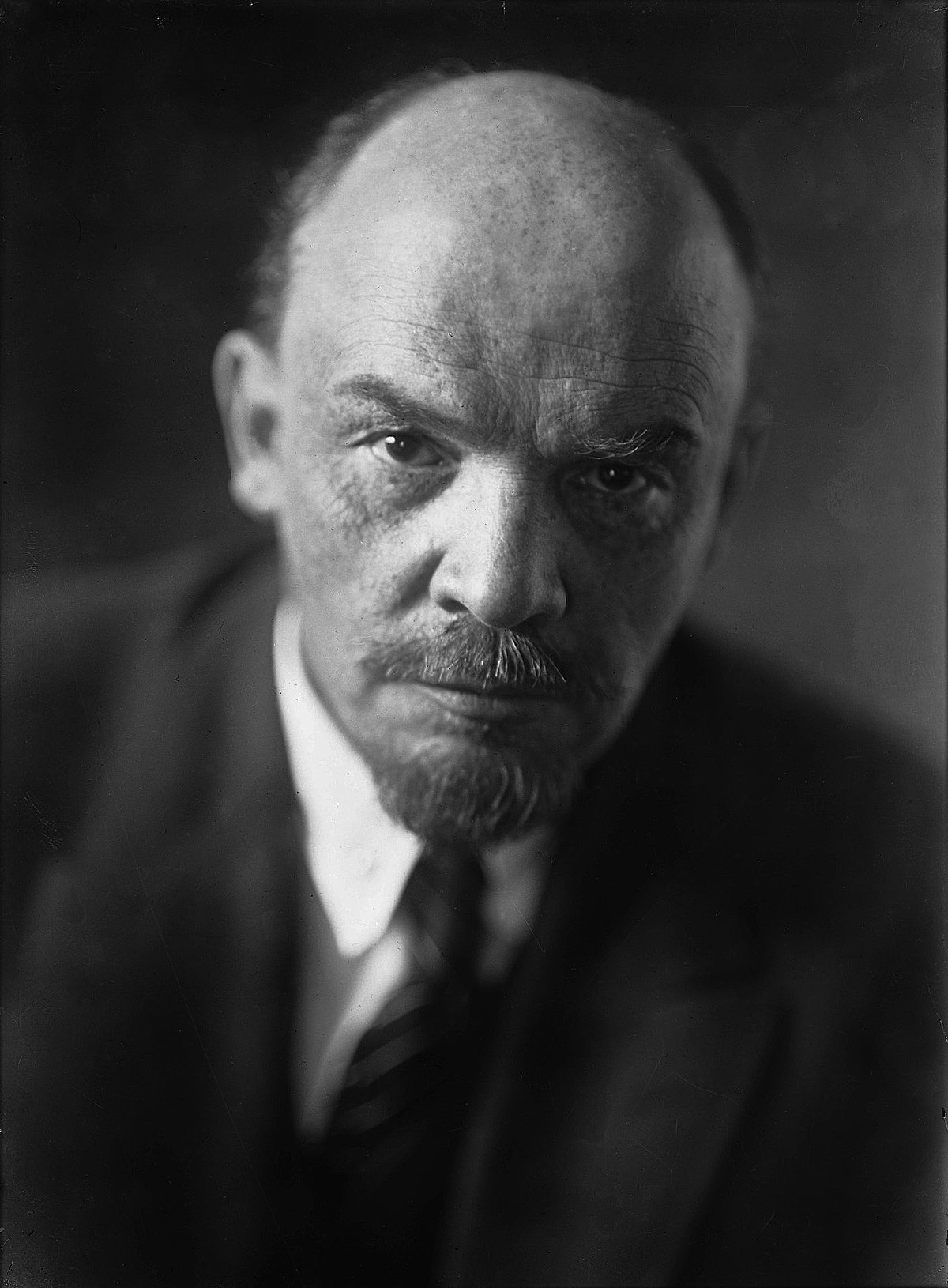More languages
More actions
(Added a photo of Lenin) Tag: Visual edit |
(Added a new heading to start) Tag: Visual edit |
||
| Line 4: | Line 4: | ||
== Definition == | == Definition == | ||
Stalin, being one of Lenin's staunchest defenders and advocates, has defined Leninism to be an advancement of Marxism from that of under [[Karl Marx|Marx]] and [[Friedrich Engels|Engels]] into the era of [[imperialism]] in the 20th century. It is the theory and tactics of the proletarian revolution in general, and the theory and tactics of the proletarian. What places Leninism as an advancement is that Marxism in the 19th century was pursued in the pre-revolutionary period when imperialism was not yet fully developed. Leninism was pursued in the 20th century when imperialism was already developed.<ref>{{Citation|author=Joseph Stalin|year=1924|title=The Foundations of Leninism|title-url=https://www.marxists.org/reference/archive/stalin/works/1924/foundations-leninism/index.htm|chapter=Introduction|chapter-url=https://www.marxists.org/reference/archive/stalin/works/1924/foundations-leninism/introduction.htm|quote=Leninism is Marxism of the era of imperialism and the proletarian revolution. To be more exact, Leninism is the theory and tactics of the proletarian revolution in general, the theory and tactics of the dictatorship of the proletariat in particular. Marx and Engels pursued their activities in the pre-revolutionary period, (we have the proletarian revolution in mind), when developed imperialism did not yet exist, in the period of the proletarians’ preparation for revolution, in the period when the proletarian revolution was not yet an immediate practical inevitability. But Lenin, the disciple of Marx and Engels, pursued his activities in the period of developed imperialism, in the period of the unfolding proletarian revolution, when the proletarian revolution had already triumphed in one country, had smashed bourgeois democracy and had ushered in the era of proletarian democracy, the era of the Soviets.}}</ref> | Stalin, being one of Lenin's staunchest defenders and advocates, has defined Leninism to be an advancement of Marxism from that of under [[Karl Marx|Marx]] and [[Friedrich Engels|Engels]] into the era of [[imperialism]] in the 20th century. It is the theory and tactics of the proletarian revolution in general, and the theory and tactics of the proletarian. What places Leninism as an advancement is that Marxism in the 19th century was pursued in the pre-revolutionary period when imperialism was not yet fully developed. Leninism was pursued in the 20th century when imperialism was already developed.<ref>{{Citation|author=Joseph Stalin|year=1924|title=The Foundations of Leninism|title-url=https://www.marxists.org/reference/archive/stalin/works/1924/foundations-leninism/index.htm|chapter=Introduction|chapter-url=https://www.marxists.org/reference/archive/stalin/works/1924/foundations-leninism/introduction.htm|quote=Leninism is Marxism of the era of imperialism and the proletarian revolution. To be more exact, Leninism is the theory and tactics of the proletarian revolution in general, the theory and tactics of the dictatorship of the proletariat in particular. Marx and Engels pursued their activities in the pre-revolutionary period, (we have the proletarian revolution in mind), when developed imperialism did not yet exist, in the period of the proletarians’ preparation for revolution, in the period when the proletarian revolution was not yet an immediate practical inevitability. But Lenin, the disciple of Marx and Engels, pursued his activities in the period of developed imperialism, in the period of the unfolding proletarian revolution, when the proletarian revolution had already triumphed in one country, had smashed bourgeois democracy and had ushered in the era of proletarian democracy, the era of the Soviets.}}</ref> | ||
== Theoretical Development == | |||
==See Also== | ==See Also== | ||
Revision as of 07:41, 30 October 2023

Leninism is the term used to describe the theoretical and practical methods advanced by Vladimir Lenin and the Bolsheviks in the subject of organization, agitation and propaganda, revolution and maintenance of the dictatorship of the proletariat. It was advocated as a current of political thought in 1924 by Joseph Stalin in his work The foundations of Leninism.[1] It was later taught as a coherent unity with Marxism under the term Marxism-Leninism.
Definition
Stalin, being one of Lenin's staunchest defenders and advocates, has defined Leninism to be an advancement of Marxism from that of under Marx and Engels into the era of imperialism in the 20th century. It is the theory and tactics of the proletarian revolution in general, and the theory and tactics of the proletarian. What places Leninism as an advancement is that Marxism in the 19th century was pursued in the pre-revolutionary period when imperialism was not yet fully developed. Leninism was pursued in the 20th century when imperialism was already developed.[2]
Theoretical Development
See Also
References
- ↑ Joseph Stalin (1924). Foundations of Leninism. [MIA]
- ↑ “Leninism is Marxism of the era of imperialism and the proletarian revolution. To be more exact, Leninism is the theory and tactics of the proletarian revolution in general, the theory and tactics of the dictatorship of the proletariat in particular. Marx and Engels pursued their activities in the pre-revolutionary period, (we have the proletarian revolution in mind), when developed imperialism did not yet exist, in the period of the proletarians’ preparation for revolution, in the period when the proletarian revolution was not yet an immediate practical inevitability. But Lenin, the disciple of Marx and Engels, pursued his activities in the period of developed imperialism, in the period of the unfolding proletarian revolution, when the proletarian revolution had already triumphed in one country, had smashed bourgeois democracy and had ushered in the era of proletarian democracy, the era of the Soviets.”
Joseph Stalin (1924). The Foundations of Leninism: 'Introduction'.
